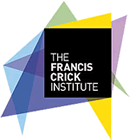About the Project
This 4-year PhD studentship is offered in Dr Venizelos Papayannopoulos’ Group based at the Francis Crick Institute (the Crick).
The innate immune system plays a critical role in human infections and nearly all human diseases from autoimmunity and sepsis to metabolic diseases and cancer. In our lab we study the role of the innate immune system in immune defence and inflammatory diseases with particular focus on atherosclerosis and sepsis. Our lab’s expertise is on cells called neutrophils the most important innate immune effector cells that were long been neglected compared to macrophages and other immune cell types. Work from our lab has shown, that depending on microbe size, neutrophils can opt to swarm or act individual to target pathogens and decide whether to ingest and kill pathogens intra-cellularly or trap them by releasing web-like structures called neutrophil extracellular traps or NETs[1, 2]. In addition to their antimicrobial roles, NETs can also promote immune pathology in inflammatory, autoimmune diseases and cancer[3]. We have made fundamental discoveries in uncovering the molecular mechanisms that promote the release of NETs and understanding how NETs promote inflammation and atherosclerosis[4, 5].
Building on these discoveries we have now shifted our attention to understanding whether neutrophil subpopulations exist, how they arise and what is their function. This has been a fundamental question in neutrophil biology which for decades has remained elusive. Recent work has provided some hint that variation in neutrophil populations may exist, particularly in the case of tumour-associated neutrophils that have been shown to promote metastasis by supressing cytotoxic T-cells and programming metastatic tumour cells via NET formation. However, these cells remain poorly characterized and the mechanisms that regulate the production of these cells are unknown. Recent unpublished work in our lab uncovered mechanisms that promote large shifts in neutrophil identity. We found that these shifts are fundamental in driving the onset of severe sepsis. However, we still don’t understand the molecular details of the pathway that promotes these shifts and whether it is implicated in other diseases such as cancer.
This project will have two aims:
a. Explore at the molecular level the mechanistic details underlying these shifts in neutrophil identity to further characterize different neutrophil populations and understand how the pathways that determine them.
b. In collaboration with Crick labs that are well established in cancer biology, explore whether this mechanism regulates neutrophil identity and disease progression in cancer.
Our lab combines techniques that approach biological problems at the biochemical, cell biological and organismal level. Hence, the project will employ an array of experimental approaches from in vivo models of disease to molecular biology and biochemical. Given the breadth of this project, the candidate will have the opportunity to work and train with post-doctoral fellows and senior students in the lab, but will also have direct access and supervision by the group leader. We are supported by excellent facilities as well as Crick colleagues with a vast experience in these biological areas. This project will have wide implications for our understanding of the immunological mechanisms that drive sepsis and cancer.
Candidate background
We are looking for an enthusiastic, highly motivated and hard-working student with a solid academic foundation, who has had experience in a research lab and has developed a passion of research. We are looking for someone who is drawn by the excitement of fundamental discoveries and can handle risky high impact projects. The applicant must have demonstrated that they can adapt and excel in a laboratory. A good understanding of biochemistry and cell biology and/or a research background in immunology from a lab with a good track record are a big advantage. The candidate will be expected to work well and closely with others, be mature and responsible and possess excellent organizational skills.
Talented and motivated students passionate about doing research are invited to apply for this PhD position. The successful applicant will join the Crick PhD Programme in September 2021 and will register for their PhD at one of the Crick partner universities (Imperial College London, King’s College London or UCL).
Applicants should hold or expect to gain a first/upper second-class honours degree or equivalent in a relevant subject and have appropriate research experience as part of, or outside of, a university degree course and/or a Masters degree in a relevant subject.
APPLICATIONS MUST BE MADE ONLINE VIA OUR WEBSITE https://www.crick.ac.uk/careers-and-study/students/phd-students BY 12:00 (NOON) 12 November 2020. APPLICATIONS WILL NOT BE ACCEPTED IN ANY OTHER FORMAT.
References
1. Branzk, N., Lubojemska, A., Hardison, S.E., Wang, Q., Gutierrez, M.G., Brown, G.D. and Papayannopoulos, V. (2014)
Neutrophils sense microbe size and selectively release neutrophil extracellular traps in response to large pathogens.
Nature Immunology 15: 1017-1025. PubMed abstract
2. Warnatsch, A., Tsourouktsoglou, T.-D., Branzk, N., Wang, Q., Reincke, S., Herbst, S., . . . Papayannopoulos, V. (2017)
Reactive oxygen species localization programs inflammation to clear microbes of different size.
Immunity 46: 421-432. PubMed abstract
3. Papayannopoulos, V. (2018)
Neutrophil extracellular traps in immunity and disease.
Nature Reviews Immunology 18: 134-147. PubMed abstract
4. Warnatsch, A., Ioannou, M., Wang, Q. and Papayannopoulos, V. (2015)
Neutrophil extracellular traps license macrophages for cytokine production in atherosclerosis.
Science 349: 316-320. PubMed abstract
5. Tsourouktsoglou, T.-D., Warnatsch, A., Ioannou, M., Hoving, D., Wang, Q. and Papayannopoulos, V. (2020)
Histones, DNA, and citrullination promote neutrophil extracellular trap inflammation by regulating the localization and activation of TLR4.
Cell Reports 31: 107602. PubMed abstract

 Continue with Facebook
Continue with Facebook

